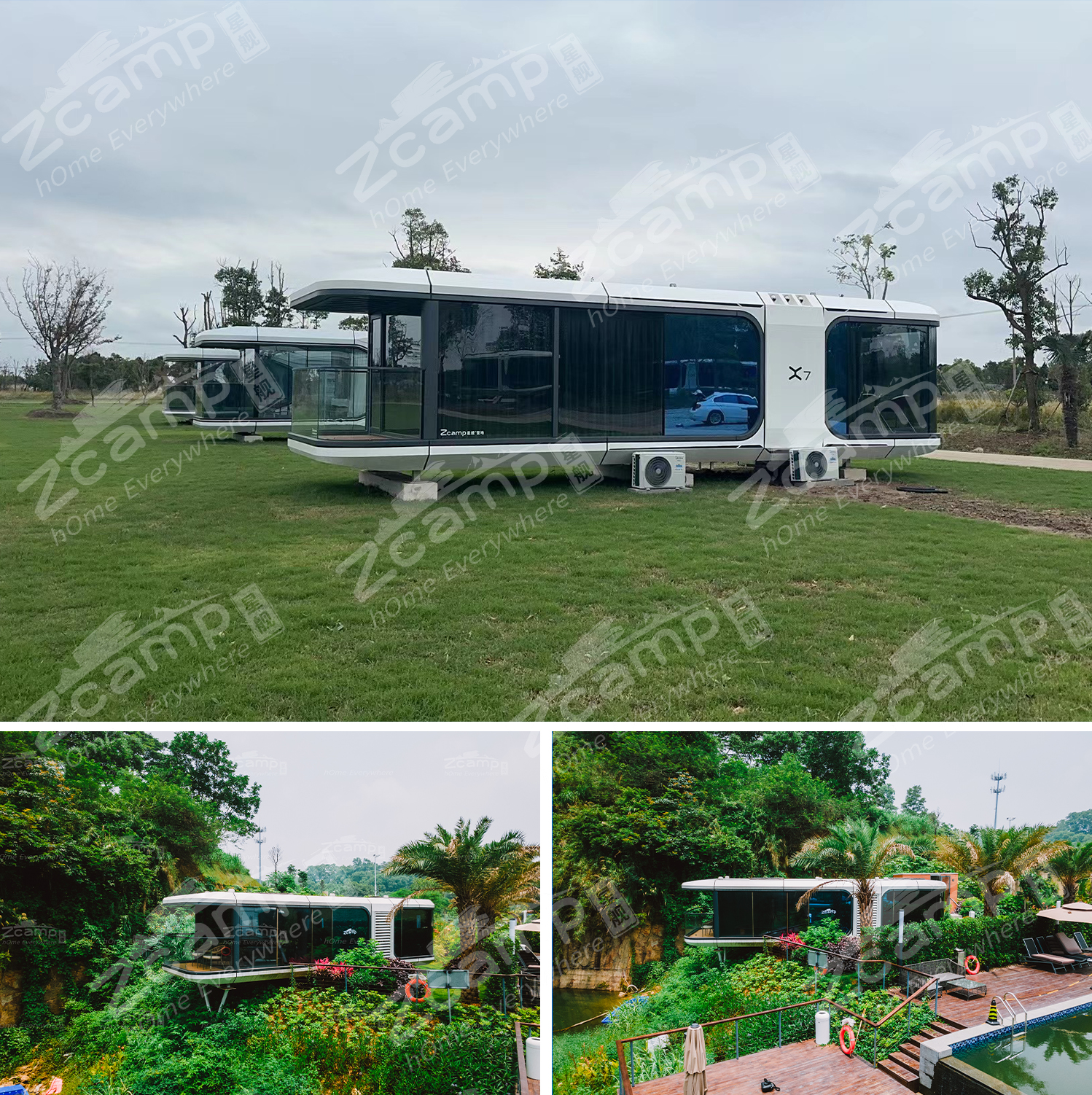Are modular homes well insulated - Zcamp
Modular homes have been gaining popularity in recent years as an innovative solution to the housing crisis. These factory-built homes offer numerous advantages, such as energy efficiency, cost-effectiveness, and versatility.we will delve into the insulation aspects of modular homes, explore the differences between manufactured, modular, and mobile homes, and introduce you to the Zcamp X7 Vessel Camp prefab modular homes.

Are modular homes well-insulated?
Modular homes are known for their energy-efficient design and construction. Insulation is a critical aspect of these homes, ensuring that they maintain a comfortable indoor temperature while minimizing energy consumption. Modular homes are built in sections in a factory-controlled environment, which allows for consistent and high-quality insulation installation.
The walls, floors, and ceilings of modular homes are typically insulated with materials such as fiberglass, cellulose, or spray foam. The insulation values for modular homes often exceed those of traditional site-built homes, resulting in improved energy efficiency and lower utility bills for homeowners. Additionally, modular homes can be customized to meet specific energy efficiency standards, such as ENERGY STAR or Passive House certifications.
What is the difference between manufactured, modular, and mobile homes?
It is essential to understand the distinctions between manufactured, modular, and mobile homes before exploring the world of prefab modular homes like the Zcamp X7 Vessel Camp.
a. Manufactured homes: These are factory-built homes that comply with the U.S. Department of Housing and Urban Development (HUD) building code. They are constructed on a permanent chassis and can be transported to the site using wheels, which are then removed upon arrival.
b. Modular homes: Modular homes, often referred to as factory-built or pre-fabricated homes, are built in sections at a factory. They are designed to be assembled on-site, using a permanent foundation. Unlike manufactured homes, modular homes are not restricted by the HUD building code and can be customized to meet local and regional building codes.
c. Mobile homes: Mobile homes, also known as trailers, are similar to manufactured homes but were built before the implementation of the HUD building code. They are typically smaller and less expensive than manufactured homes and may not meet modern energy efficiency standards.

The Zcamp X7 Vessel Camp is a prime example of a prefab modular home that combines functionality, sustainability, and style. These modular homes are designed to provide a comfortable living experience while minimizing environmental impact.
The X7 Vessel Camp features a sleek and modern design, with an emphasis on natural light and open spaces. The interior is customizable, allowing homeowners to personalize their living space according to their preferences. The home's insulation and energy-efficient design ensure that occupants enjoy a comfortable and energy-conscious lifestyle.
Modular homes, such as the Zcamp X7 Vessel Camp, offer an innovative solution to the housing crisis, providing energy-efficient, cost-effective, and customizable living spaces. By understanding the differences between manufactured, modular, and mobile homes, you can make an informed decision when choosing the perfect prefab modular home for your needs.



